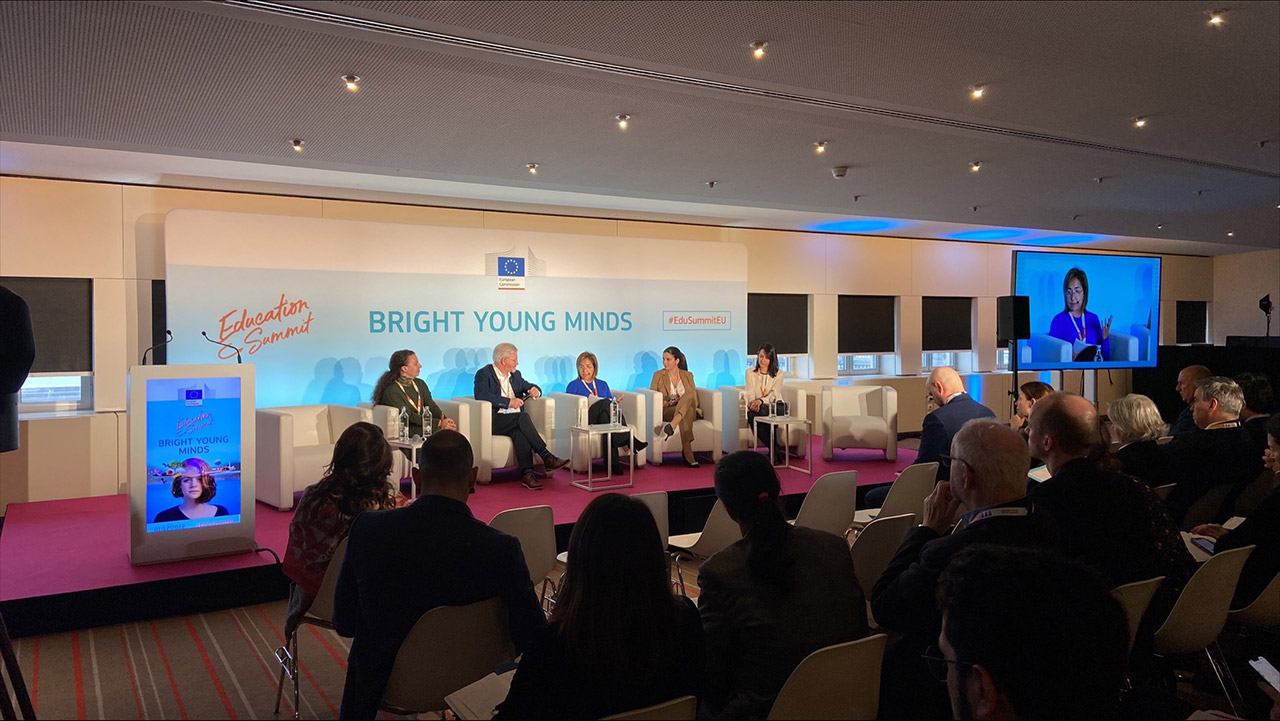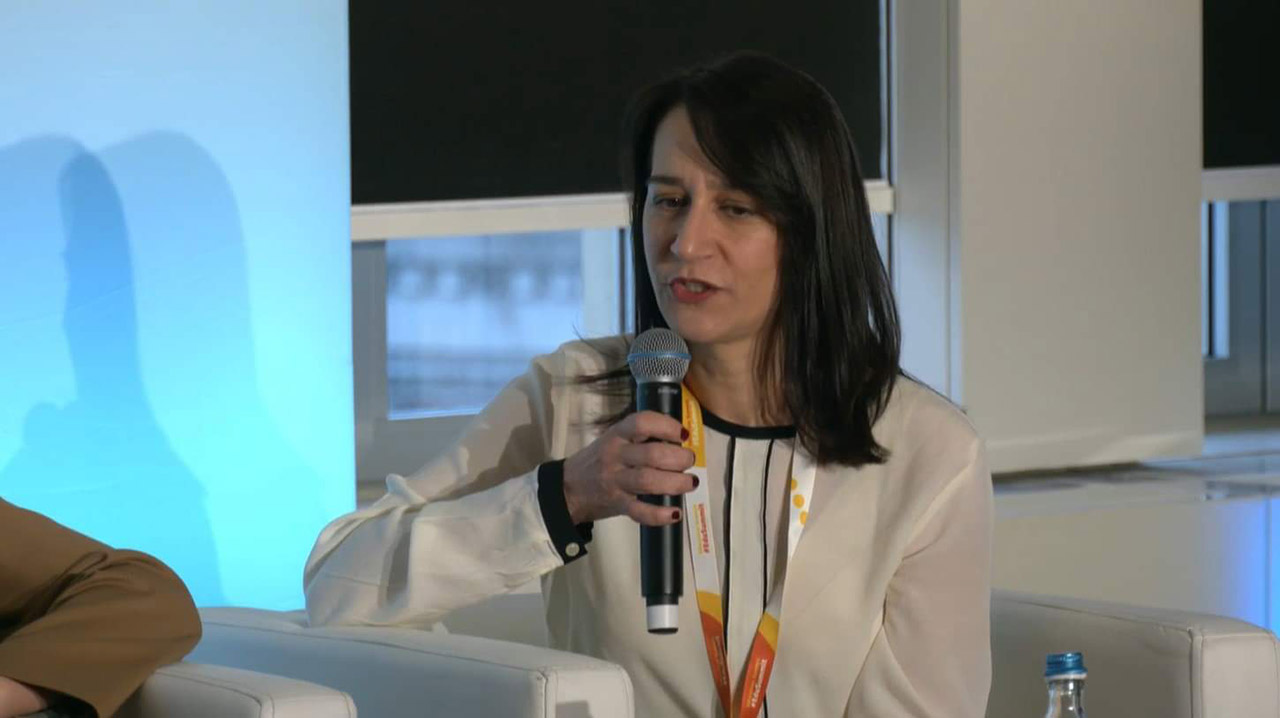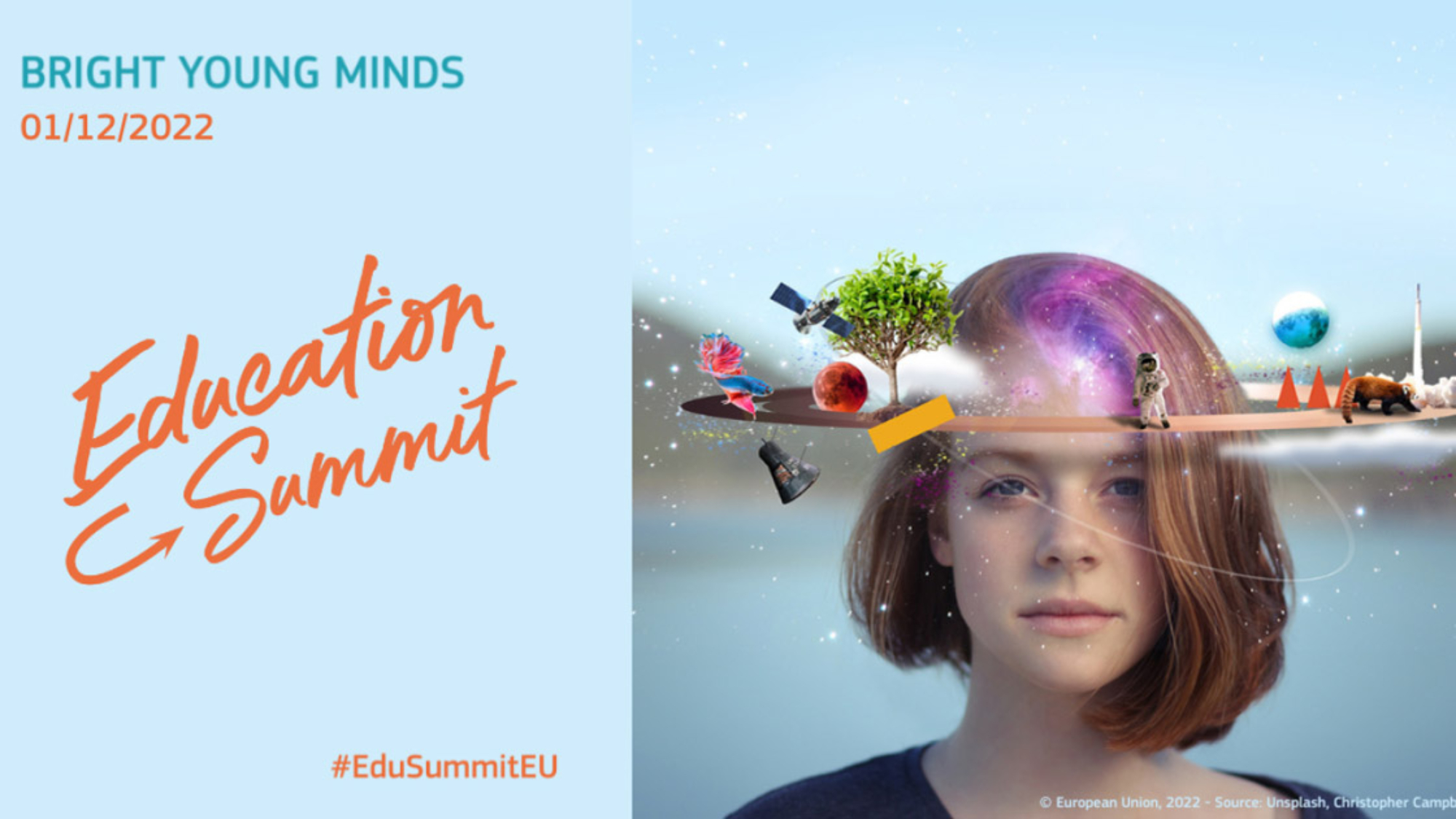The European Education Summit is an annual event organised by the European Commission, as part of a wider initiative to create a European Education Area by 2025. The fifth edition of the summit took place in Brussels on December 1, 2022 and was hosted by Mariya Gabriel, the EU Commissioner for Innovation, Research, Culture, Education and Youth.

The topic of the summit was Bright Young Minds and it addressed questions related to improvement of the education sector to the benefit of all, in particular efforts concerning strengthening the inclusive, green and digital dimension of education and training. With the aim of helping make the European Education Area a reality, the hybrid event brought together minsters, members of the European Parliament, youth representatives, representatives of civil society and education stakeholders from all sectors. The programme consisted of sessions that covered various topics, including a panel titled Building the European Education Area: from Vision to Reality. The panel was moderated by Themis Christophidou (Director-General, DG EAC, European Commission), with Miglena Georgieva (Bulgarian coordinator for the Education for Climate Coalition), Conor Galvin (Chair of the Doctorate in Education programme at the University College Dublin School of Education), Kelly Papadopoulou (Electrical and Computer Engineering student and representatives of the Girls Go Circular project) and Ljubica Petrović Baronica (Assistant Director of the Croatian Agency for Mobility and EU Programmes).

Petrović Baronica discussed the role of the SALTO resource centre for inclusion and diversity in the field of education and training and explained how it fits in the European Education Area landscape.
“One of the aims of our resource centre is to help increase the number of participants with fewer opportunities in the Erasmus+ programme. We hope to do that by building the capacity of both national agencies and beneficiaries through three strands of activities. The first strand concerns capacity building. We develop resources and tools, promote and share success stories, organise training and offer support to national agencies that are in the process of developing their inclusion and diversity strategies. The second strand revolves around awareness raising. The Erasmus+ programme offers various opportunities and support mechanisms that we want to promote as they help in the process of involving a greater number of participants with fewer opportunities and improve the impact of these projects. Finally, our SALTO resource centre conducts various research and we hope that the findings will help us develop and design activities that are better suited to the needs of our target groups.”
More information about the summit, including recordings of each session, can be found at the website of the European Commission.
